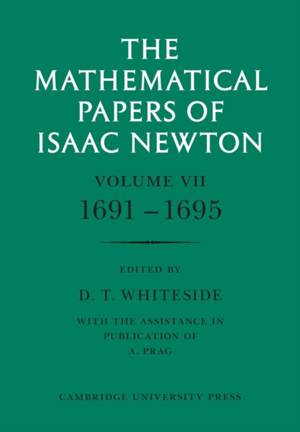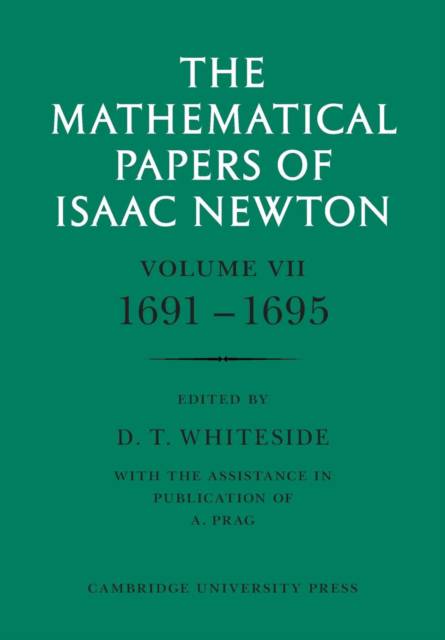
Door een staking bij bpost kan je online bestelling op dit moment iets langer onderweg zijn dan voorzien. Dringend iets nodig? Onze winkels ontvangen jou met open armen!
- Afhalen na 1 uur in een winkel met voorraad
- Gratis thuislevering in België vanaf € 30
- Ruim aanbod met 7 miljoen producten
Door een staking bij bpost kan je online bestelling op dit moment iets langer onderweg zijn dan voorzien. Dringend iets nodig? Onze winkels ontvangen jou met open armen!
- Afhalen na 1 uur in een winkel met voorraad
- Gratis thuislevering in België vanaf € 30
- Ruim aanbod met 7 miljoen producten
Zoeken
€ 112,95
+ 225 punten
Uitvoering
Omschrijving
Newton's mathematical researches during the last five years of his stay in Cambridge before leaving in April 1696 to take up his duties at the Mint in London have three main centres of interest: methods of fluxions and series, classical pure geometry, and Cartesian analytical geometry. Part 1 reproduces Newton's advances at this time in further extending the techniques of his combined calculus of fluxions and fluent, and of expansion into infinite series. Part 2 gives publication of Newton's lengthy excursions in the early 1690s into the modes of geometrical analysis used by the 'ancient' geometers, based - by way of Commandino's Latin translation - on the account of this little understood field of the Greek 'topos analuomenos' which was given by Pappus in the prolegomenon to the seventh book of his Mathematical Collection. Part 3 gives prominence to the final text of the Enumeratio Linearum Tertii Ordinis which Newton put together in June 1695.
Specificaties
Betrokkenen
- Auteur(s):
- Uitgeverij:
Inhoud
- Aantal bladzijden:
- 764
- Taal:
- Engels
- Reeks:
Eigenschappen
- Productcode (EAN):
- 9780521045896
- Verschijningsdatum:
- 11/02/2008
- Uitvoering:
- Paperback
- Formaat:
- Trade paperback (VS)
- Afmetingen:
- 170 mm x 244 mm
- Gewicht:
- 1192 g

Alleen bij Standaard Boekhandel
+ 225 punten op je klantenkaart van Standaard Boekhandel
Beoordelingen
We publiceren alleen reviews die voldoen aan de voorwaarden voor reviews. Bekijk onze voorwaarden voor reviews.











